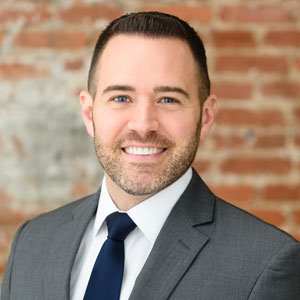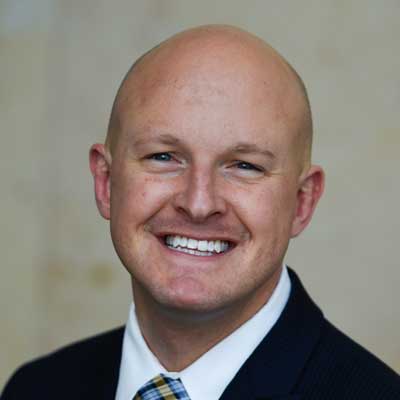
Shaping the Future of
Education Since 1935
For more than 80 years, Gallup has delivered visionary research on what people worldwide think and feel. Discover Gallup's defining moments in education and learn how Gallup is changing education in America.
A Legacy of Science-Based Research in Education
1935
American Institute of Public Opinion Formed
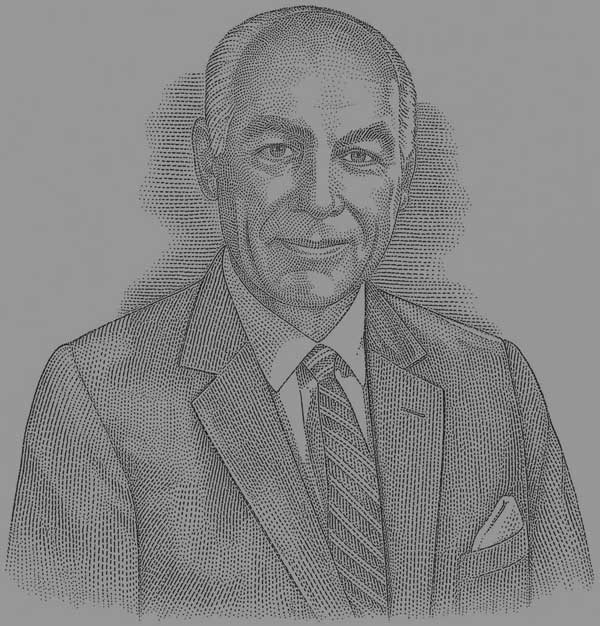
George H. Gallup (1901-1984) founded the American Institute of Public Opinion, the precursor to Gallup, in Princeton, New Jersey, in 1935. Gallup taught college courses in journalism at Drake University, Northwestern University and Columbia University. With national newspaper syndication of "The Gallup Poll," and almost daily references in the press, "Gallup" soon became a household word. Gallup sought the public's views on education reform and later began his annual poll of the U.S. public about American education in 1969. Today, Gallup's World Poll surveys a representative sample of over 160 countries and more than 99% of the world's population to discover what the people of the world are thinking.
1950
Study of Student Counselors' Effectiveness
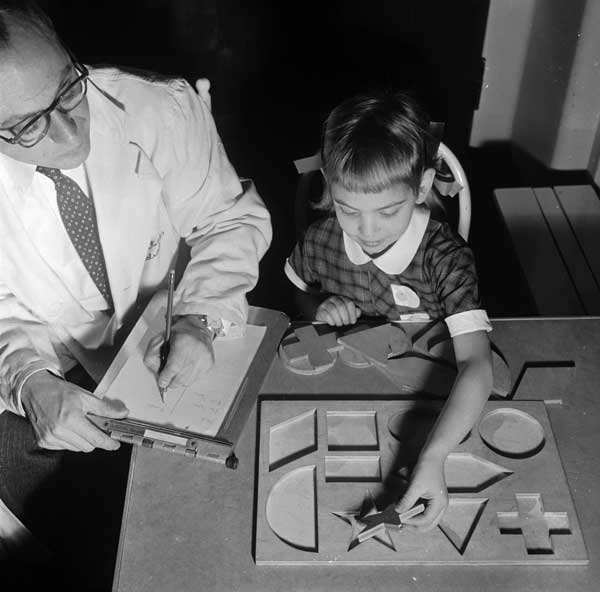
Don Clifton (1924-2003) and his colleagues at the University of Nebraska studied what made some student counselors more talented than others. Almost 70 years later, Gallup's work studying student and guidance counselors continues. In 2017, Gallup and Strada Education Network released findings that 55% of U.S. adults with at least some college but no more than a bachelor's degree list their informal social network as providing advice about their college major, more so than counselors or advisers.
1966
The Dipper and the Bucket Theory
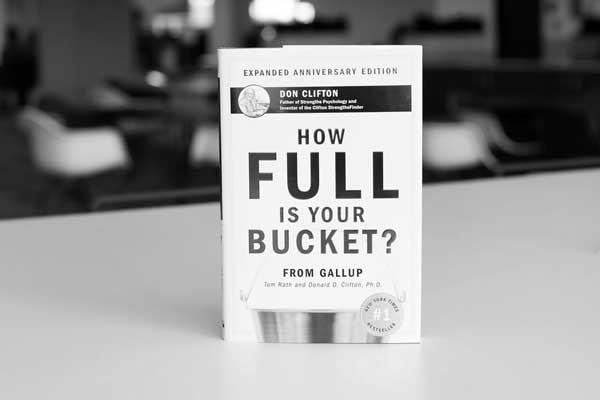
Don Clifton created a narrative about the power of positive emotions and how we, as individuals, are at our best when our buckets are "full and overflowing." This theory provided tips on how to become better workers, parents, neighbors and citizens and served as the basis for the No. 1 bestselling New York Times book How Full Is Your Bucket? Teachers can increase positive moments in the classroom, enhance student engagement and improve student performance by applying this theory to their interactions with students.
1973
Project Empathy and "Our Greatest Contribution"

Don Clifton and his team received a federal grant in 1973 to kick off a study to identify characteristics of outstanding teachers. Then in the mid-70s, Clifton famously said, "Our greatest contribution is to be sure there is a teacher in every classroom who cares that every student, every day learns and grows and feels like a real human being." This quote has long been an inspiration for educators.
1980
Talent Management Formula
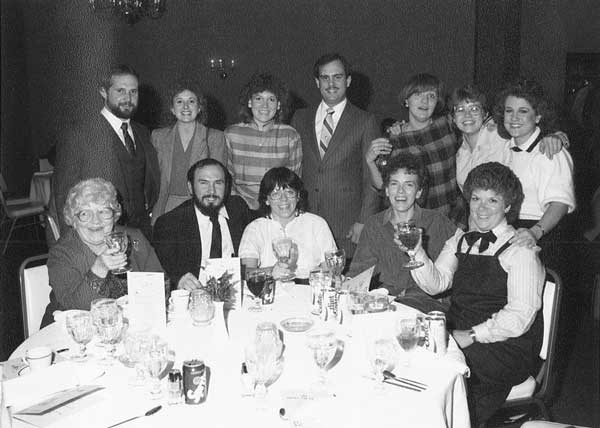
The Talent Management Formula, or "Varsity Approach to Management," is the idea that people only develop in response to other people. Clifton explained this formula using an equation: Talent x Relationship (Reward and Expectation) = Growth and Productivity. Clifton discovered that when managers and leaders optimize the elements of relationships, expectation and rewards, and recognition, people perform at their highest potential.
2003
Don Clifton Named the Father of Strengths-Based Psychology
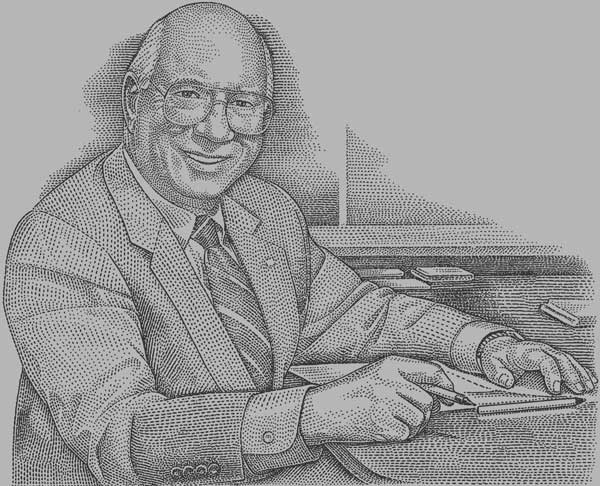
The American Psychological Association honored Don Clifton with a Presidential Commendation as the father of Strengths-Based Psychology and the grandfather of Positive Psychology. More than 18 million people worldwide use the CliftonStrengths assessment that Clifton invented. The strengths explosion is creating cultural change in schools, colleges and universities nationwide with more than 600 schools using the CliftonStrengths assessment to prepare students for great jobs and great lives.
2014
Gallup-Purdue Index, Now Gallup Alumni Survey, Launches Inaugural Report
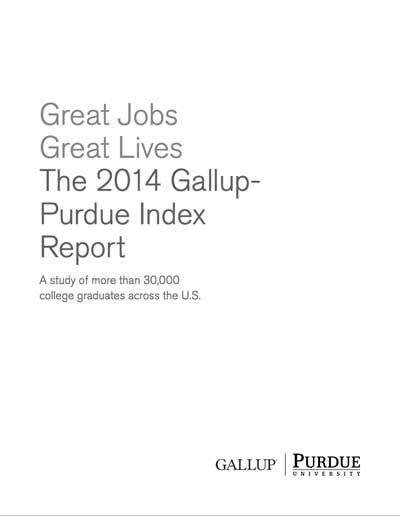
The Gallup Alumni Survey, formerly the Gallup-Purdue Index, enables institutions to understand whether alumni are engaged in their work, whether they are thriving in key aspects of their well-being, how they rate their undergraduate experiences and their attachment to their college or university after graduation. Gallup and Purdue launched the inaugural report -- based on interviews of more than 30,000 graduates -- in 2014. The report assesses graduates' employment, professions, workplace engagement and well-being and connects these outcomes with key student experiences to help institutions create a rigorous process for continuous improvement. From 2018 to 2019, Gallup joined forces with Strada Education Network to create the Strada-Gallup Alumni Survey.
2015
Clifton Strengths Institute Founded

Clifton Strengths Institute, the first "strengths institute," was founded at the University of Nebraska funded through a $30 million donation from Gallup and the Clifton Foundation. The Clifton Builders Program identifies and develops students with high leadership and entrepreneurial potential who want to change the world by building new businesses, teams or communities through leadership and involvement.
2017
Strada-Gallup Education Consumer Insights
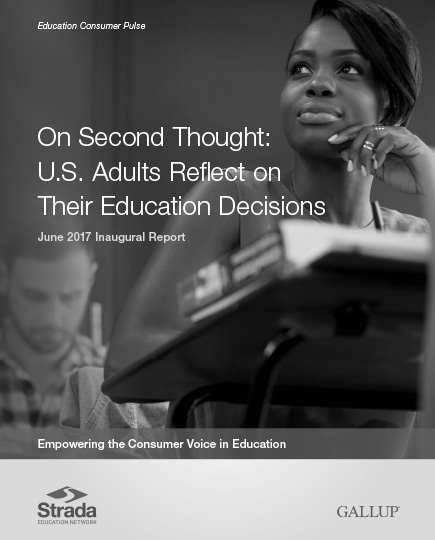
In June 2017, Strada and Gallup published their inaugural report On Second Thought: U.S. Adults Reflect on Their Education Decisions, illustrating the extent to which education consumers in the U.S. are pursuing and completing postsecondary education programs that advance their chosen careers and life goals. The Strada-Gallup Education Consumer Insights partnership and its corresponding surveys represent the nation's largest data set of consumer insights on pathways from education to employment.
We provide targeted guidance, advice and solutions for your most pressing problems.
We want to hear your dilemmas and help provide solutions to them.
Gallup assists districts, schools, universities and institutions nationwide with research-based strategies to provide a culture shift in education to help students on their path toward great careers and great lives.
K-12 Education
- School Boards
- Superintendents
- Assistant Superintendents
- Principals
- Teachers
- Guidance Counselors
- Students
Higher Education
- President and Provosts
- Board of Trustees
- Student Affairs Divisions
- Membership Organizations Serving Higher Education
- Media Organizations Serving Higher Education
Research Partnerships
- Nonprofits
- Foundations
- Government and State Agencies
- Corporations and Membership Organizations

We change the national conversation on student success.
How we make a difference:
- Gallup provides custom analytics and advice to colleges and universities using in-depth qualitative interviews with alumni, faculty and staff, students, and employers, as well as a unique ability to use Gallup's nationally representative study of 75,000 college graduates as a benchmark.
- We are creating the nation's largest data set of consumer insights on pathways from education to employment through our partnership with Strada Education Network.
- We have measured nearly 5 million students' voices and provided data on dimensions of student success with the Gallup Student Poll.
50% of all alumni "strongly agree" their university education was worth the cost.
88% of superintendents agree that student engagement is a key measure of school effectiveness.
Only 34% of current college students feel prepared to enter the job market and just over half (53%) believe their major will lead to a good job.
